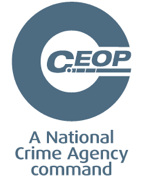SEND INFORMATION
One Childhood, One Chance: Happy, Safe, Successful.
With this in mind, it is our responsibility to ensure that every child in our school reaches their full potential. Your child will be helped and encouraged to achieve to the best of their ability and their achievements will be celebrated. Your child will learn to make choices, be responsible for his or her own actions, be polite, to be co - operative, to get along with others and to care for the environment in which we live and learn.
INCLUSION AT UPTON
The Senco at Upton is Camilla Claxton - senco@uptonjunior.com
PRINCIPLES
At Upton we adopt the following principles regarding successful inclusive education.
-
To ensure all pupils are offered full access to a broad, balanced and relevant curriculum.
-
All pupils will be given the opportunity to reach their full potential educationally, emotionally and physically.
-
All teachers view themselves as teachers of pupils with special educational needs, teaching such pupils is a whole school responsibility.
-
Pupil's Special Educational Needs will normally be met in the mainstream classroom.
-
Pupils' views should be sought and taken into account.
-
Parents/carers have a vital role to play in supporting their child's education and therefore good home/school links are established.
Children who are seen to have Special Educational Needs are monitored carefully and are given appropriate interventions and support according to their specific needs. Click here to read the DfE SEND Code of Practice.
THE ROLE OF THE SPECIAL EDUCATIONAL NEEDS COORDINATOR
SENCO role will include:
-
Ensuring the school meets all requirements for special educational needs and disabilities as set out through legislation;
-
Monitor the progress of all pupils across the school identifying where pupils may be making less than expected progress and implement strategies to support this;
-
Evaluate the impact of provision (including effective use of teaching assistants) and address any concerns that arise;
-
Develop systems that ensure all pupils needs are met and that staff are accountable for the progress of pupils;
-
Audit whole school systems such as use of language for learning and provision mapping so that impact can be measured and a cost analysis can be completed;
-
Liaise with agencies when appropriate for further support with specific pupil needs or whole staff training
-
Liaise with parents and develop parental involvement when supporting a child identified as requiring additional support or vulnerable;
-
Be accountable to the governors and report to them
SPECIAL EDUCATIONAL NEEDS
Children who are seen to have Special Educational Needs are monitored carefully and are given appropriate interventions according to their specific needs. Our school supports children with the following needs (as outlined in the SEN Code of Practice, 2015):

BEHAVIOUR, SOCIAL AND EMOTIONAL NEEDS
Inclusion takes into account all the needs of the children and these include how a child behaves. Upton promotes an ethos towards positive behaviour management and the children and staff are encouraged to use the Upton Golden Rules alongside our Core Values.
Children's social and emotional needs also need to be considered carefully if a child is to reach their full potential. To help us in this Upton have Learning Mentors who support children across the school in a variety of ways. A major role of the Learning Mentor is to run Nurture and Self-esteem groups to support the children. They are given the opportunity to speak about how they feel and to support each other, developing a child’s emotional intelligence.
The SEND and pastoral team consists of:
-
Miss C Claxton (SENCo, Designated Teacher for children in care)
-
Miss D Arthur (Head of School)
-
Mrs A Turner (Learning Mentor)
-
Mrs Z Danson (Learning Mentor)
-
Miss K Arthur (SENCo Assistant)


